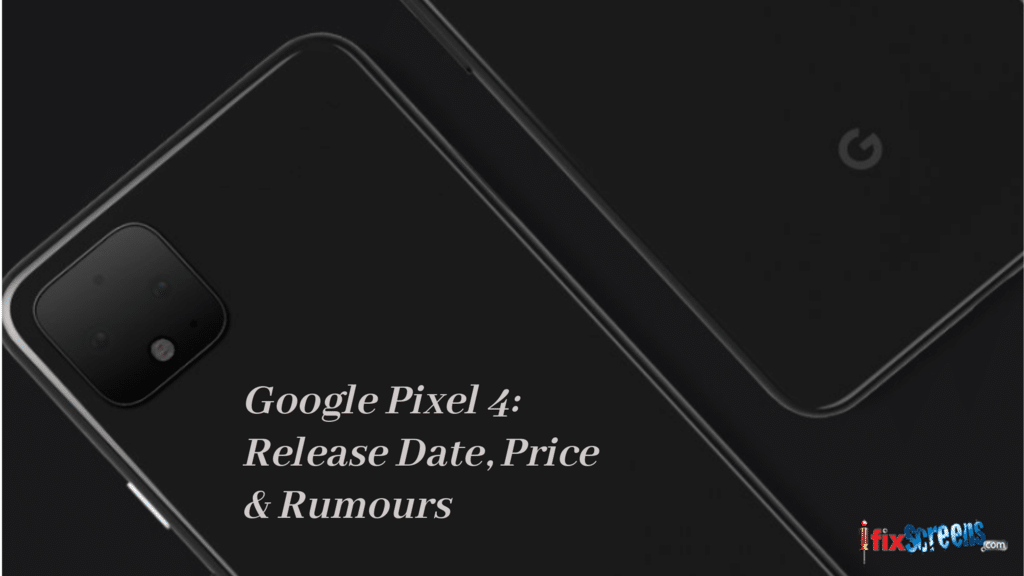Google Pixel 4 : Release Date, Price And Rumours - News
For years now, Google has opted to release its Pixel lineup in the latter half of the year, after the usual roller coaster of smartphone releases from the first half of the year has died down. More specifically, we expect a Google Pixel 4 launch date sometime in early October based on past form, with it likely that Google will take the opportunity to launch a few other hardware options at the same time, such as the long-rumored Pixel Watch.
Following the announcement, it’s likely that the Pixel 4 and Pixel 4 XL release date will be in early November if past years are anything to go by. In terms of the Google Pixel 4 price, the cost of Pixel handsets has been climbing for years now.

With the extra features now included and the general emphasis on a premium fit and finish, the Pixel 4 – or at least the XL model – could be the first of the line to break the $1,000/£1,000/AU$1,500 mark.
We’ll probably also see multiple different storage capacities offered at different prices. More information will arrive closer to the launch, so watch this space.
Pixel 4 Release Date:
- October 2019
For the last few years, the Google Pixel devices have been unveiled in October during the company’s Made by Google event. The Pixel 2 and 2 XL were announced on 19 October 2017, while the Pixel 3 and 3 XL were a little earlier on 4 October 2018.
Pixel 4 Price:
- From £750+
Prices for the current flagship Pixel devices start at £739 so expect the Pixel 4 to dance around the same figure, if not higher.
Both Samsung and Apple have increased prices for their latest devices so it wouldn’t be a surprise to see Google do the same, even if its Pixel 3a and 3a XL sold better than their more expensive siblings.
Pixel 4 Design:
- Two-tone rear
- Different colored power button
- Square camera housing
Google’s Pixel smartphone has always featured a two-tone rear. The ratios of the two sections on the back have changed over the last couple of years, but the design idea itself has remained so we’d expect the same for the Pixel 4 devices, though possibly without the fingerprint sensor if Google moves to an under-display option for the new devices.
Pixel 4 Display:
- Pixel 4: 5.7-inches
- Pixel 4 XL: 6.3-inches
- 90Hz refresh rate
Reports suggest the Pixel 4 will have a 5.7-inch screen and the Pixel 4 XL will have a 6.3-inch display for 2019. It’s claimed both displays will give 90Hz refresh rates, like the OnePlus 7 Pro, offerings smooth and slick experience.
Google has confirmed the Pixel 4 will also come with a range of sensors in a bezel at the top of the display, allowing for motion gestures and Face Unlock. This means no notch for either Pixel device this year, with both sets offering bezels at the top and bottom of the display.
Google Pixel 4 Features And Hardware:
- Qualcomm SD855
- 6GB RAM
- 2800mAh/3700mAh batteries
- Android Q
The Qualcomm Snapdragon 855 is expected to be the chipset of choice for the Pixel 4 devices, with reports of 6GB of RAM support. Neither is expected to offer microSD for storage expansion but both will run on pure Android Q.
In terms of battery capacities, the Pixel 4 is said to have a 2800mAh cell, while the Pixel 4 XL is said to have a 3700mAh cell. Both will offer fast charging support. The Pixel 4 is confirmed to offer Google’s Soli radar chip that will allow for the Face Unlock technology and motion gestures.
Google Pixel 4 Camera
- Dual rear camera
- 12MP+16MP
Based on details offered by Google itself, the Pixel 4 will have a camera system in a square housing positioned in the top left of the device.
It’s claimed this system will be a dual-camera comprised of a 12-megapixel sensor and a 16-megapixel telephoto sensor moving on from the single sensor offered by the Pixel 3 and 3 XL.
The Pixel 3 XL had a dual front camera, but the images offered by Google regarding the Soli chip and Face Unlock features suggest a single front camera will be present, at least for the smaller model, as was the case for the Pixel 3.
What We Want To See:
- Multiple rear cameras
- No notch
- More RAM
- Stereo speakers
- Longer battery life
- Stadia-sized ambitions
- More color options
- A sturdier construction
As such, whether via an all-metal build or through something a little different we would like to see Google hold a little utilitarianism into its design, creating something which anyone can use at any time, any day.
Related Post:
